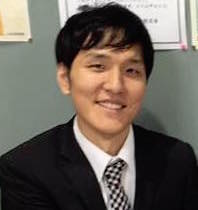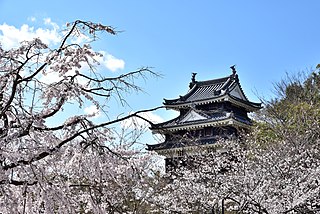Nishio (written: 西尾) is a Japanese surname. Notable people with the surname include:
- Akira Nishio (西尾 明, born 1979), Japanese shogi player
- Daisuke Nishio (西尾 大介, born 1959), Japanese animator and director
- Etsuko Nishio (西尾 悦子, born 1973), Japanese singer, actress and model
- Hiroshi Nishio (西尾 孔志, born 1974), Japanese film director, animator and writer
- Kanji Nishio (西尾 幹二, born 1935), Japanese academic
- Linda Nishio (born 1952), Japanese-American artist
- Mari Nishio (西尾 まり, born 1974), Japanese actress
- Masanori Nishio (西尾 正範, born 1949), Japanese politician
- Shoji Nishio (西尾 昭二, 1927–2005), Japanese aikidoka
- Shojiro Nishio (西尾 章治郎), Japanese computer scientist
- Nishio Tadaatsu (西尾 忠篤, 1850–1910), Japanese daimyō
- Nishio Tadakata (西尾 忠固, 1811–1857), Japanese daimyō
- Nishio Tadamitsu (西尾 忠需, 1716–1760), Japanese daimyō
- Nishio Tadanao (西尾 忠尚, 1689–1760), Japanese daimyō
- Nishio Tadanari (西尾 忠成, 1653–1713), Japanese daimyō
- Nishio Tadasaka (西尾 忠受, 1821–1861), Japanese daimyō
- Nishio Tadateru (西尾 忠照, 1613–1654), Japanese daimyō
- Nishio Tadayoshi (西尾 忠善, 1768–1831), Japanese daimyō
- Nishio Tadayuki (西尾 忠移, 1749–1801), Japanese daimyō
- Tetsuya Nishio (西尾 鉄也, born 1968), Japanese animator and character designer
- Toku Nishio (西尾 徳, 1939–2005), Japanese actor and voice actor
- Toshizō Nishio (西尾 寿造, 1881–1960), Japanese general

Akira Nishio is a Japanese professional shogi player ranked 7-dan.

Daisuke Nishio is a Japanese animator and director. He joined Toei Doga as animator in 1981. After doing several TV series, he was promoted to assistant director on Dr. Slump - Arale-chan in 1982. He debuted as director for Dragon Ball in 1986 and made his film debut that same year with Dragon Ball: The Legend of Shenlong. Nishio also directed its sequel TV series, Dragon Ball Z, and several of its films.
Etsuko Nishio is a Japanese singer, actress and model, known for her songs Ja Ja Uma ni Sasenaide and Don't mind Lay Lay Boy from the Ranma 1/2 anime. In 1992 she became a gravure idol, releasing several nude photobooks and videos. She also starred in a couple feature films.
| This page lists people with the surname Nishio. If an internal link intending to refer to a specific person led you to this page, you may wish to change that link by adding the person's given name(s) to the link. |

